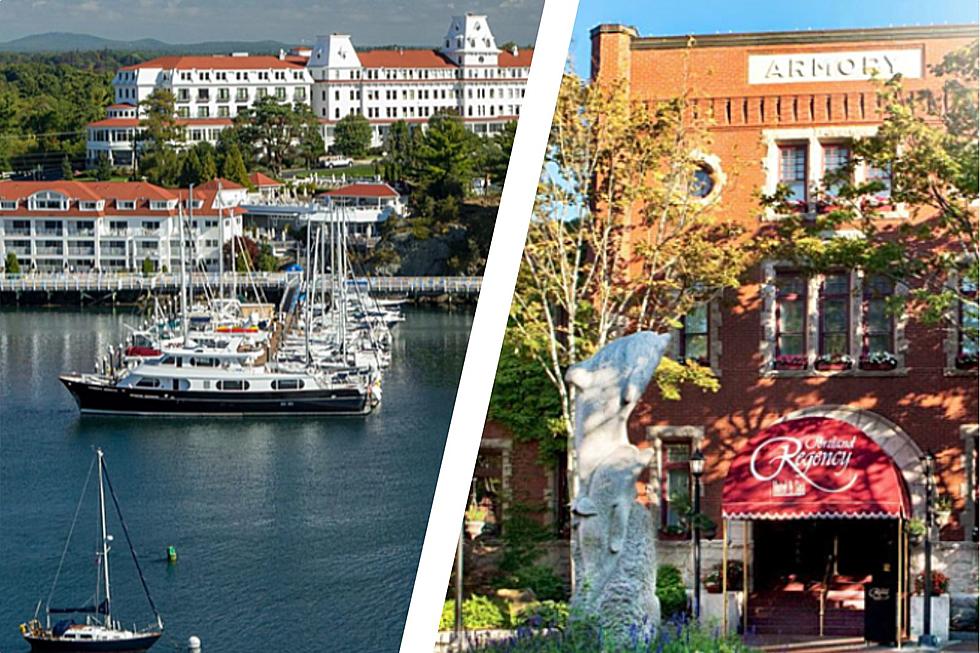
Which Providers Have the Best Cell Phone Service in Maine?
There’s nothing more frustrating than not having cell service, especially when you really need it. You have likely found yourself unable to send or receive calls or data, surf the internet, or perhaps you've had a call drop randomly. It’s surprising to see that a lot of subscribers are actually experiencing more difficulty than ever getting good coverage from their cell phone providers.
I got the idea to bring the question “What cell phone provider has the best data service?” to Facebook, as I’ve been experiencing difficulty with my current provider. As it turns out, the answer is not as cut and dry as one might think.
Before we break it down, it’s important to know that if your phone is operating at a slow pace, it doesn’t necessarily mean you’re in a bad service area. You may have exhausted your allotted data for the month bringing your speed down. If that’s the case, most providers will allow you to increase your data for an extra fee.
As a whole, the Facebook conversation showed T-Mobile to be the most favored provider when it comes to service in Maine, with US Cellular not far behind.
The discussion also showed that Verizon tends to get the job done in the Greater Portland area, but has shown a decline in recent years. As a Verizon customer myself, I have had difficulty sending and receiving media while experiencing 2-3 bars of signal strength, which I’ve confirmed with a few other Verizon subscribers. I’ve experienced more frequent dropped calls as of late as well.
Chiming in on the conversation was Jonathan Irwin, who owns Techy in Waterville, an electronics repair store, with his son. Working for several of the major cellular companies over the years, he said he’s quite familiar with most of the providers and where their strengths and weaknesses lie.
For the most nationwide coverage as a whole, his experience has shown Verizon & AT&T to be the leaders. He went on to say that there are many congested areas where their speeds are slow, and T-Mobile or US Cellular may be a better choice.
He went on to say that US Cellular regional carrier performs well in rural areas. However, if you travel to bigger areas such as cities in Massachusetts, New York, and Florida, you may find yourself roaming, allowing your data to work on the network of another provider, which can cause slower speeds and be an extra cost if it’s not already built into your current plan.
He also mentioned that Spectrum Mobile uses Verizon’s towers and Wi-Fi, but just doesn’t get network priority over Verizon customers. As for hot spots and data speeds, he stated that Spectrum Mobile throttles at 20gb of high speed, Verizon at 30gb, T-Mobile at 50gb, and AT&T at 22gb or 50gb, depending on the plan.
If you’re looking to save money on your monthly bills and still have decent service, there are also lesser-known providers like Google-Fi that run off of other cell phone towers. It’s important that you read the fine print before making any decisions.
A true cellular nerd, Jonathan also provided this additional information:
Carriers with the Most Customers:
1.Verizon
2. T-Mobile (in 2020, they overtook the number 2 spot from AT&T. After its great success with John Legere as CEO with the "Un-carrier" movement and its purchase of Sprint).
3. AT&T
4. U.S. Cellular
Cheapest Providers:
Google-Fi - (via T-mobile and U.S. Cellular towers)
Mint Mobile - (Owned by Ryan Reynolds - uses T-Mobile’s Towers)
Spectrum Mobile - (Buy 1 line $30 get the 2nd free for 1 year. Uses Verizon’s towers and their spectrum internet hot spots)
Straight Talk - (Uses Verizon, AT&T and T-mobile towers)
Most 5G Coverage:
T-Mobile (covers over 50% of the US)
AT&T (30%)
Verizon (12.77%)
U.S. Cellular (1.8%)
Fastest 5G Speeds:
Verizon’s millimeter-wave 5G is the fastest in the country, with speeds above 2Gbps. Verizon 5G Ultra-Wideband is faster, but taking them much longer to roll out where.
T-Mobile’s mid-band rollout was faster for them to deploy because they cover more than 50% of America in 5G. However, T-Mobile’s 5G gives only up to 160Mbps vs Verizon’s is 2GBps.
In closing, it doesn’t appear that there is that one provider that necessarily trumps the others. Unfortunately, it mostly depends on what area you live in, where you travel, and your budget that will likely lead you to your best decision.
30+ Stunning FREE Phone Wallpapers for Maine Lovers Everywhere
Gallery Credit: Brittany Rose
Central Mainer's Show Us The Most Random Photos From Their Phone
Gallery Credit: Lizzy Snyder



